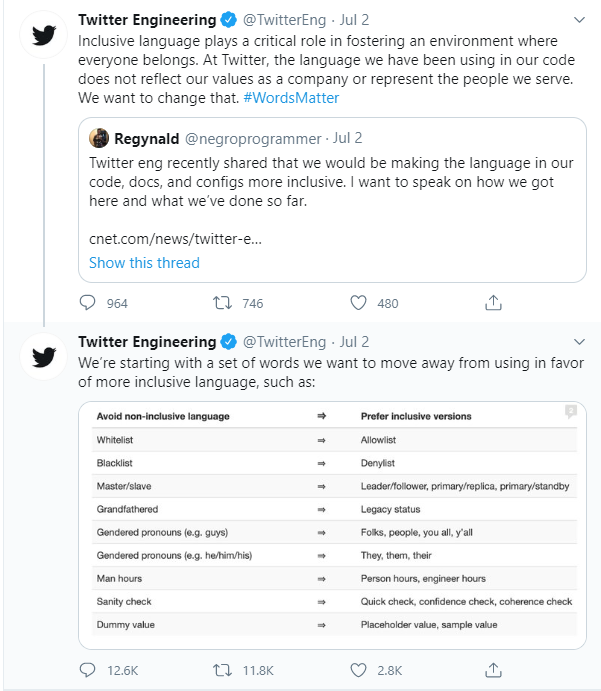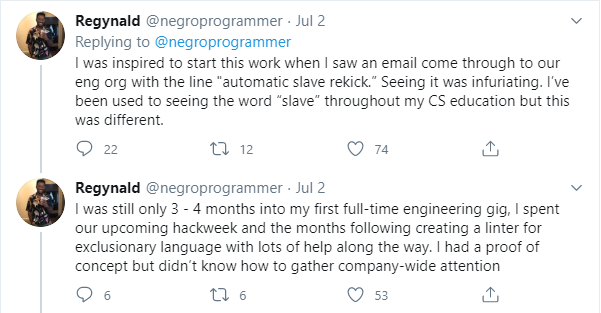The Twitter engineering team announced that they are ditching an assortment of commonly used terms that they feel are offensive and do ” not reflect our values as a company or represent the people we serve,” replacing them with a host of more inclusive ones.

The changes came after one of the engineers, Regynald Augustin, felt that some of the language being used regarding the coding and back-end infrastructure was sexist, ageist, ableist and racist.

The new prohibitions do not simply include the typical inclusionary language like gender pronouns, but also a slew of terms, which don’t make much sense to discontinue.
For example, Twitter has banned the use of the terms ‘blacklist’ and ‘whitelist” insisting they be replaced with ‘denylist’ and ‘allowlist’ due to the negative racial connotation associating ‘black’ with something bad but ‘white’ with good. But the origin of these terms has nothing to do with any sort of racial component. According to sources
The English dramatist Philip Massinger used the phrase “black list” in his 1639 tragedy The Unnatural Combat.
After the Restoration of the English monarchy brought Charles II of England to the throne in 1660, a list of regicides named those to be punished for the execution of his father. The state papers of Charles II say “If any innocent soul be found in this black list, let him not be offended at me, but consider whether some mistaken principle or interest may not have misled him to vote”
After bringing it to Twitter’s attention, the company took action. According to Skugal
“The company is putting some serious muscle behind the effort, and will develop “warning tools” to comb through its source code for offending words. Internal documentation, FAQs, readmes and design manuals will all be sanitized, and Twitter will even develop a browser extension to root out any problematic stragglers.
Lead Twitter engineer Micahel Montano writes :
Words matter. We want @TwitterEng to reflect our values & support our journey to become more inclusive. We are committed to adopting inclusive language in our code, configuration, documentation and beyond thanks to the principles & framework @negroprogrammer@kevino put together.











